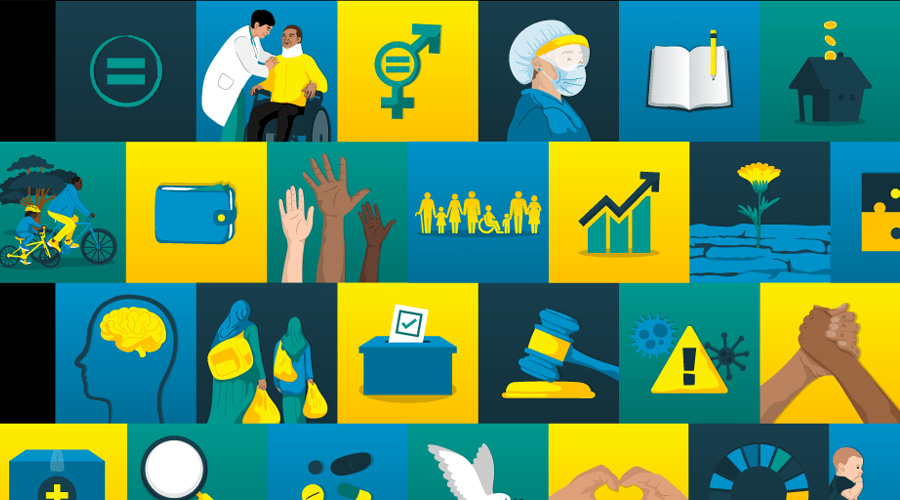
Health care and biotech have long been attractive companies and investors and industry leaders start-ups have spurred investment into the industry to even higher heights
Even before the deadly virus propelled investment into the field to even higher heights, health care and biotech have long been hot businesses in the start-up and technology sectors. However, investors and start-up tech businesses say it’s not just COVID-19 that’s piqued their attention. From artificial intelligence achievements to more openness about mental health concerns and even greater consumer interest in at-home testing and preventative care, several recent technical innovations, and market developments have garnered the majority of investment.
Diagnostics
In health care, the idea of spitting in a tube, pricking one’s finger, or packing a faeces sample for examination isn’t new. However, doing all of this at home and hiring a private business to analyse it is still a new, but rising, segment of the market that investors like Peechu are keeping an eye on. Viome, located in Bellevue, Washington, raised US$54 million last year to fund research into aggressive tumors and chronic illnesses in the hopes of developing early-stage diagnostics and therapies. Most people are familiar with the company because of its at-home diagnostic kits, which exchange a sample of blood or stool for diet and supplement recommendations—a service that grew in popularity during the epidemic.
Gene Editing and Cell Therapy
After scientists have employed technology to identify diseases like cancer and other chronic illnesses, the question of therapy will inevitably emerge. In the new year, Adam Wieschhaus, director of Northpond Ventures, is ecstatic. “Some of the greatest IPOs (in 2021) were in the realm of gene editing and cell therapy,” he said in an interview. “These companies are making significant progress in developing novel medications for cancer, cardiovascular disease, and other unmet needs, and we believe these solutions will improve patient outcomes in the long run.” He and Northpond Ventures, a group that invests in breakthrough science and technology companies, will keep an eye on these developments and maybe invest in them.
Fintech
People came to hospitals in droves when COVID-19 hit the United States in early 2020. Some attended because they were sick with the coronavirus and needed assistance, some because they wanted to be sure their cold wasn’t the new virus, and others because they had other pressing matters to attend to. The country’s healthcare system had many vulnerabilities, but none were as severe as the frequently manual and paper-based file systems that slowed everything down, including billing. PayZen, a medical finance business that secured US$15 million in a Series A round this year to develop its “care now, pay later” strategy in the United States, is an example of this. The business creates a platform that allows people to estimate their healthcare costs and their capacity to pay for them.
Mental Health
After individuals all around the world spent nearly two years apart from their loved ones, worrying about jobs, money, and sickness, mental health has risen to the forefront of public attention. People are now talking more openly about sadness, anxiety, trauma, and other formerly taboo mental health conditions. This trend, along with recent technological advancements such as wearables, brain imaging, tailored treatments, and even chatbots that may assist triage patients in crises, make the business ideal for expansion as it tries to satisfy new demand. According to Ryan Todd, CEO of Headversity, which provides mental health, safety, and resiliency training for businesses, employers are increasingly understanding the importance of proactively assisting employees with mental health difficulties.
Let’s have a look at what some of the industry leaders in the area have to say:
Alice Ly
Alexandria LaunchLabs was founded by Alice Ly, who is also a principal in Alexandria Venture Investments in Seattle. In 2022, clinical findings will be available from a solid worldwide pipeline of more than 1,800 gene and cell treatments presently in clinical trials, highlighting what lies ahead for breakthrough medicines. We might see long-awaited approvals for breakthrough medicines being given to patients, or we could face roadblocks that force biotech to keep inventing, such as creating non-viral delivery systems to realise the potential of gene therapy.
Francois Baneyx
Francois Baneyx, University of Washington professor of chemical engineering, vice provost for innovation, and director of CoMotion. With SARS-CoV2 variations multiplying and a pandemic approaching endemic status, vaccine development and data-driven repurposing of current and experimental treatments will remain top priorities for the biotech industry. Precision medicine therapies to reduce the severity of SARS-CoV2 infections, as well as ultrafast and low-cost COVID-19 diagnostic methods, will be available in the new year.
Hilary Hehman
Hilary Hehman, vice president of commercial development at the Fred Hutchinson Cancer Research Center, it’s impossible for cell therapies based on CAR T cells and T cell receptors to not be my first solution to this issue coming from Fred Hutch, an early investor in the field with multiple corporate links. However, there is a considerable impact from the proximity of the therapeutic materials. In biotech, there is a lot of emphasis on developing platforms to help with product scalability, particularly in the field of therapeutic manufacturing. Many biotechs are working hard to overcome two scaling bottlenecks: manufacturing speed and vector reliability.
Eric Rosenfeld
The Oregon Venture Fund was founded by Eric Rosenfeld. The capacity to continually monitor airborne viruses and detect them in real-time may be one of the most puzzling, untapped potentials for biotech in 2022. On-site biosensors may soon be able to identify airborne viruses in real-time, thanks to advances in molecular identification technology. Consider the advantages in terms of health, safety, and economics for schools, businesses, and public meeting areas.



















